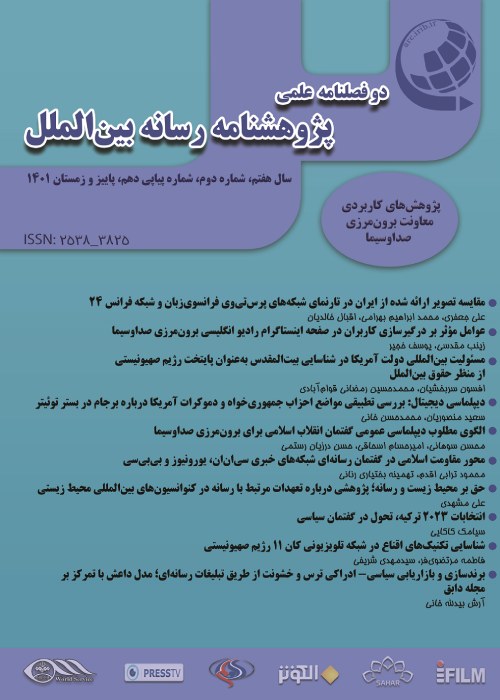Turkey's GAP and DAP Projects from the Perspective of International Law and the Mission of the Media
By building dozens of dams on the international rivers of Tigris, Euphrates and Aras, Turkey's GAP and DAP projects confront the countries of Iraq, Syria, Iran, Armenia and the Republic of Azerbaijan with a multitude of environmental crises and economic, social and humanitarian challenges. The creation of micro dusts, the reduction of water rights of downstream countries, the loss of native aquatic species, the drying up of wetlands, desertification, the crisis of health agriculture, the aggravation of unemployment and migration are the consequences of GAP and DAP projects. Claiming that the Tigris, Euphrates and Aras water sources are part of the country's internal waters, Turkey is completing these projects despite the protests. The purpose of this article is to examine GAP and DAP from the perspective of international law and with the theoretical framework of "international environmental law" and "environmental human rights", especially the concept of "prohibition of harmful use of the environment" and by applying the descriptive and analytical method, in order to answer this question that, what are the dimensions of violation of international law in GAP and DAP? The findings show that the implementation of the GAP and DAP project contradicts the customary rules of international environmental law and the "Convention on the Law of Non-Navigational Uses of International Watercourses", the Ramsar Conventions and combating desertification, The Convention on Environmental Impact Assessment in a Transboundary Context (ESPOO), Aarhus and the Stockholm Declaration. Also, due to the violation of the "Right to Access to a Healthy Climate" and the destruction of cultural works, it severely violates the rules of international human rights and the cultural rights of minorities. The Iranian broad casting World Service Media can neutralize Ankara's media policy in censorship and reversing the consequences of these projects by explaining the dimensions of human rights and environmental rights violations in GAP and DAP projects, and at the same time, by creating sensitivity and demand in public opinion and environmental protection groups, they hinder the development of implementation and stop foreign investments in them.
- حق عضویت دریافتی صرف حمایت از نشریات عضو و نگهداری، تکمیل و توسعه مگیران میشود.
- پرداخت حق اشتراک و دانلود مقالات اجازه بازنشر آن در سایر رسانههای چاپی و دیجیتال را به کاربر نمیدهد.



